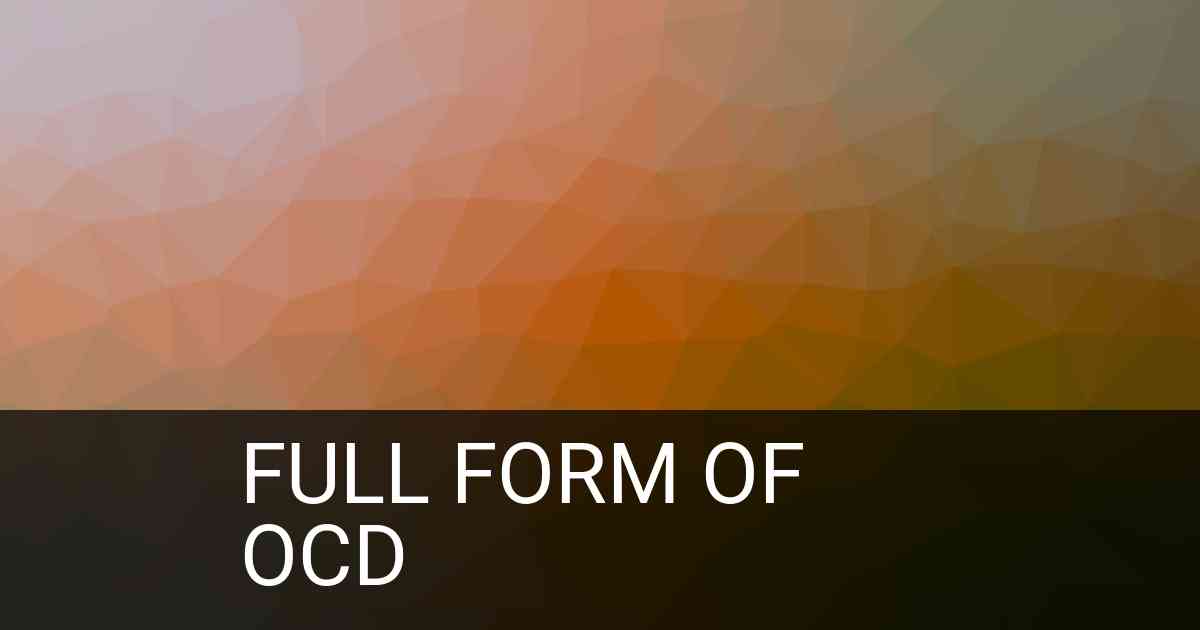
The Full Form of ‘OCD’ in Medical is ‘Obsessive-Compulsive Disorder’.
Full Form of OCD
Obsessive-Compulsive Disorder, commonly referred to as OCD, is a mental disorder characterized by persistent intrusive thoughts and repetitive behaviors or rituals. People with OCD experience recurrent, unwanted thoughts, impulses, or images that are typically unpleasant or disturbing and cause distress. They may attempt to suppress these thoughts by engaging in compulsive behavior in order to reduce anxiety or fear.
OCD often begins during childhood or adolescence and can be difficult to diagnose. Symptoms of OCD may include excessive washing and cleaning, constant checking of items such as doors and locks, a need for symmetry and orderliness, hoarding of items without any real purpose, and difficulty making decisions. In some cases, OCD symptoms can get worse over time if not treated properly.
The full form of OCD in medical terms is Obsessive-Compulsive Disorder. This disorder is classified as an anxiety disorder because it involves uncontrollable obsessions that lead to compulsive behavior designed to relieve the distress caused by the obsession. People with OCD often feel trapped in a cycle of obsessive thoughts that they cannot control and rituals that they must perform in order to relieve the anxiety caused by their obsessions.
People with OCD often experience distress related to their obsessive thoughts and compulsions which can interfere with daily functioning and relationships. Commonly known treatments for this disorder include cognitive-behavioral therapy (CBT) which helps individuals identify irrational thought patterns associated with the condition; exposure response prevention (ERP) which helps individuals confront feared objects or situations; medications such as serotonin reuptake inhibitors (SSRIs); and lifestyle modifications such as relaxation techniques and stress management strategies.
It is important for people suffering from OCD to understand that they can manage their condition with proper treatment. While there is no cure for this disorder, many people find relief from symptoms through medication, psychotherapy, lifestyle modifications, relaxation techniques, self-help books or support groups. It is also important for family members to be aware of the signs of OCD so they can provide support and help seek treatment when needed.
In conclusion, Obsessive-Compulsive Disorder (OCD) is a serious mental health disorder characterized by persistent intrusive thoughts and ritualistic behaviors designed to reduce anxiety associated with those thoughts. It can be difficult to diagnose due to its complexity but effective treatments are available including CBT, ERP interventions, medications such as SSRIs, lifestyle modifications like relaxation techniques or stress management strategies. With proper treatment most people with OCD can learn how to manage their symptoms effectively so they can lead fulfilling lives without being overwhelmed by the condition’s symptoms
Queries Covered Related to “OCD”
- What is the full form of OCD in Medical?
- Explain full name of OCD.
- What does OCD stand for?
- Meaning of OCD

